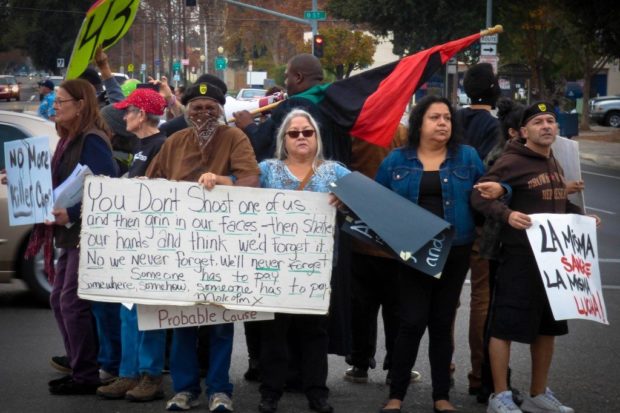
By Ernesto Saavedra
On Dec. 3, 2014, thousands of people from all backgrounds gathered in 43 cities, and more, in response to the missing 43 students (as of Dec. 7, it was 42) from the Raúl Isidro Burgos Rural Teachers College of Ayotzinapa in Tixtla, Guerrero, Mexico. This occurred the night of Sept. 26 in Iguala, Guerrero, after police and students clashed earlier that same day.
Ayotzinapa: School of Teaching and Resistance
Ayotzinapa, and other rural schools like it, have a long tradition of leftist, militant activism. Comprised of mostly young, indigenous male students, Ayotzinapa trains its students in critical thinking, participation and teaching. Activism, in turn, is just as important as sitting in the classroom. In keeping with that tradition, about 100 students traveled from Tixtla to Iguala to protest the government’s education reforms, which favored the urban schools and teachers over the rural ones. A common practice of the Mexican government: Pass reforms that favor the more affluent while further marginalizing the poor, mostly rural, indigenous populations of Mexico.
In addition, they were gathering resources, including some commercial buses, to take to Mexico City for a demonstration commemorating the 1968 massacre of student protestors in the Tlatelolco Plaza by the Partido Revolucionario Institucional (PRI) government of Díaz Ordaz in October. Students eventually clashed with the federal police.
Disappearance
While students were carrying out their resistance, federal police began to move in on them by blocking roads making it impossible for anyone to come and go. A maneuver used regularly by occupying forces “trapped” resisters in an attempt to make them immobile and defenseless. The day was winding down and students packed commercial buses to leave. Their message was heard loud and clear; they wanted to go home to their school, family and friends. From 9 p.m. and on, the buses the students were on were stopped by federal police and other armed men. Showered by bullets, many attempted to escape and many were loaded up into police vehicles disappearing in the shadows of the night.
“I was dancing”
During a radio interview, former mayor of Iguala Jose Luis Abarca, after trying to put the blame on the students for protesting in the first place, was asked where he was on the night of Sept. 26; he said, “I was dancing.” Abarca would disappear shortly after “on a leave of absence” with his wife Maria de Los Angeles de Pineda. In October, Mexico’s attorney general Jesus Murillo Karam confirms that Jose and Maria directly ordered the attack on the students. Shortly after, under pressure, the governor of Guerrero, Ángel Aguirre Rivero, resigned. In November, Jose and Maria were found hiding out in Mexico City and arrested. Abarca won’t be dancing any time soon.
#YaMeCanse/IamTired
At a press conference, Attorney General Karam, when asked for further questions, said, “Ya me canse (I am tired).” Karam’s remarks resonated with that of millions as people hit the streets demanding justice and answers for the 43. Many gathered in their towns in solidarity with the 43 through marches, rallies and protests. Occasionally, government buildings were set ablaze and major roads momentarily blocked.
People began to mobilize in the United States. One example of this is #UStired2. According to its Web site, “Inspired by our friends, family and loved ones in Mexico, #UStired2 is a nationwide effort involving students, local Mexican and Latino…and many others from across the entire United States.” It goes on to note that “We act with the confidence and the conviction that the time has come to stop contributing to the failed drug war in Mexico.
The first step in that process is to stop “Plan México,” a multibillion dollar U.S. aid package that has done nothing to reduce drug traffic into the United States or drug use here, and has instead supported a corrupt government using the drug war as cover for a war on its own people, especially those like the Normalistas of Ayotzinapa, young souls whose only “crime” is wanting a better education and life. On Dec. 3, 43 cities stood in solidarity across the United States, including Fresno.
We Are All Tired and Can’t Breathe
What happened in Iguala occurred amid the ongoing murder and further marginalizing of Black and Brown people here in the United States. The parallels between what is happening in Mexico, the United States and around the world really cannot be ignored. The intersectionality of systemic oppression transcends borders and, in turn, our resistance to it. To see this, all you have to do is look at how militarized occupying forces like police are in poor, Black and Brown communities. Politicians, legislation and policies support these forces and allow them to do what they wish. This impunity is unjustifiable and needs to be stopped. Whether through a march, rally, vigil or direct actions against the representations and upholders of the system (e.g., police stations, government buildings, banks), resist.
